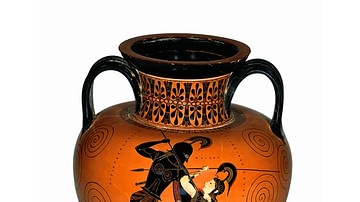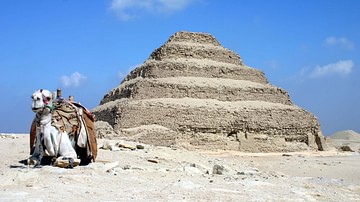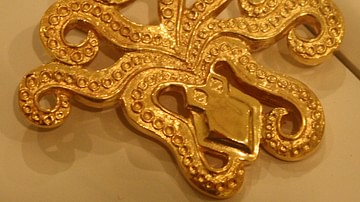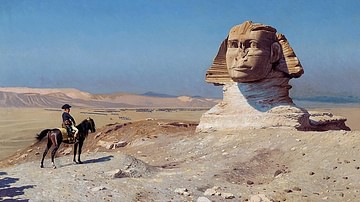Search
Did you mean: Ino?
Summary 
Loading AI-generated summary based on World History Encyclopedia articles ...
Search Results

Article
In Search of the Promised Land: Saint Brendan’s Voyage
Between the 9th and the 10th century CE, in an unknown European abbey, an anonymous author told the story of an Irish monk and his 14 companions who embarked on a dangerous journey in the 5th century CE. The monk's name was Brendan, and his...

Article
In Darwin's Footsteps - Te Waimate Mission
The Bay of Islands is a subtropical region in New Zealand's far north and is a popular destination for big-game fishing, sailing, and dolphin watching. It is an area rich in the history of Maori (Māori in their own language) and European...

Interview
In the Forest - Exhibition Interview Schweizerisches Landesmuseum
The forest is a habitat for people, animals, and plants, a provider of invaluable resources, and an ally in the fight against climate change. The greatest beneficiary of the forest is humanity – but it is also its greatest threat. Over the...

Definition
Religion in the Ancient World
Religion (from the Latin Religio, meaning 'restraint,' or Relegere, according to Cicero, meaning 'to repeat, to read again,' or, most likely, Religionem, 'to show respect for what is sacred') is an organized system of beliefs and practices...

Definition
War in Ancient Times
The word 'war' comes to English from the old High German language word Werran (to confuse or to cause confusion) through the Old English Werre (meaning the same), and is a state of open and usually declared armed conflict between political...

Definition
Silk in Antiquity
Silk is a fabric first produced in Neolithic China from the filaments of the cocoon of the silk worm. It became a staple source of income for small farmers and, as weaving techniques improved, the reputation of Chinese silk spread so that...

Definition
Pottery in Antiquity
Pottery is the first synthetic material ever created by humans. The term refers to objects made of clay that have been fashioned into the desired shape, dried, and either fired or baked to fix their form. Due to its abundance and durability...

Definition
Early Dynastic Period In Egypt
The Early Dynastic Period in Egypt (c. 3150 - c. 2613 BCE) is the beginning of the historical era of the country during which the regions of Upper Egypt (south) and Lower Egypt (north) were united as one country under a centralized government...

Definition
Gold in Antiquity
Gold, chemical symbol Au (from the Latin aurum meaning 'shining dawn'), is a precious metal which has been used since antiquity in the production of jewellery, coinage, sculpture, vessels and as a decoration for buildings, monuments and statues...

Definition
Napoleon's Campaign in Egypt and Syria
The French Expedition to Egypt and Syria (1798-1801), led by Napoleon Bonaparte, aimed to establish a French colony in Egypt and to threaten British possessions in India. Despite initial French victories, the campaign ultimately ended in...